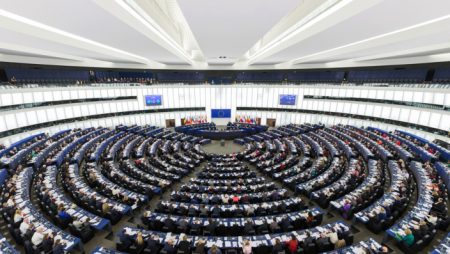August 29, 2016 – There was a time in the 20th century when democracy faced its biggest challenge. It was the Second World War and totalitarian states wielded significant power waging wars of conquest. Inevitably it was the “arsenal of democracy” that triumphed.
Today as the world faces climate change, freshwater scarcity and the first “P,” population growth, what political systems are up to meeting the challenge?
Consider China with its centrally managed, central leadership, single party state system. Has China produced better results than its democratic rivals in addressing the challenges of the 21st century? Some would say yes.
After all China mandated a one-child family policy that today has led to a declining birthrate below population replacement levels. Draconian measures penalized families who had two children. The second child had almost no social status or privileges of citizenship. An unintended consequence of the policy is an aging Chinese population and a shrinking workforce. Now China has relaxed the the one-child policy to try and restore population from decline to net zero growth.
The Communist Party set and enforced this family social policy. It has also introduced economic and environmental reforms producing positive and negative results. With no opposition the country doesn’t play politics in the same way as democracies. The struggle for leadership and ideas gets contained within the party itself. These struggles have led to grand failed experiments like the Cultural Revolution, and the Great Leap Forward. But the political process has also led to an economic miracle with rapid expansion of energy infrastructure and manufacturing capacity, an Industrial Revolution compacted into a period lasting a couple of decades. China has raised a half billion out of poverty during these decades, but it has also fouled its air and water, created cities laden in toxic smog and reduced lifespan of its citizens in these locations by as much as five years below the national average. The latest political initiative has China attempting a quick conversion over two decades from dirty energy to renewable clean using the same central planning and politics that characterizes all its other experiments.
Could a democracy do this? Do democracies want to do this? And if they do is there sufficient political will combined with the power of the ballot box to achieve the type of massive experimentation that China has undertaken?
Again the only example we have of democracies acting in this manner comes from the Second World War where old politics briefly got thrown out and the rule book that governed democratic debate was shut closed in pursuit of defeating an external enemy. That’s not typical democracy. Instead democratic politics tends to move at a snail’s pace under normal circumstances. But when a hurricane devastates a coastal city, a tornado flattens a community, an ice storm or fire destroys a city, or a river floods surrounding farms and towns, then the democratic process acts and does it quickly. Emergency resources are thrown at the problem and decision making is done at the executive level and not subject to democratic debate. Not to say that democracies haven’t been successful in getting many long-term things right throughout the 20th century, creating welfare states and social safety nets and lifting many of their citizens out of poverty.
Democracies don’t nearly do as well though when confronted with insidious challenges like climate change. By their nature they succeed and fail through political processes. The history of democracies shows they’ve done this lots of times. Invariably the electorate chooses new political leaders and parties to correct past mistakes. But all of this back and forth political process of election and correction cycles takes time.
Compare a decision made in China taking months at the most to one that might take years to enact in a democracy. That’s because in the traction of democracy time has always been an ally giving a democratic country the ability to adapt and overcome its problems sometimes over decades.
But today time is democracy’s Achilles’ heel when talking about climate change and the stress imposed by population growth. Here politics of debate and dissent, part of the democratic process, makes tackling the problems far more difficult. And the results to date show up in rising CO2 levels in the atmosphere, rising sea levels in our oceans, declining biodiversity across the planet, and a population bomb that will yield 10 billion of us in a little over thirty years from now.
If we look at the democratic response to climate change to-date at best we can say we have been muddling through. We collectively have agreed that we have to decrease the amount of carbon in the atmosphere but few democratic nations have enacted a tax on carbon to reduce our use of fossil fuels. Few have made the necessary investments in renewable energy projects while they continue to dabble with fossil fuels, selling leases to drill for more and building pipelines to placate competing political interests. It’s a tug of war over the future of the planet and political democracy appears to be failing in the timeliness of its response.
In 2012 David Runciman, University of Cambridge, United Kingdom, gave a speech on this very subject where he pointed out that muddling through left democracy vulnerable to creeping challenges. He stated, “complacency is dangerous if we are faced with something like climate change that needs pre-emptive action. The risk is that if we wait too long to adapt we won’t adapt in time.”
So how do we master politics in the 21st century to address its challenges?
- We have to learn a little from China without the onerous nature of its processes and without making the same mistakes. At the same time we have to change the way government and politics in democracies engage public discourse.
- When the ballot box cycle rules then the politics of the moment prevails. Today political parties put together platforms aimed at winning elections and ruling, but not necessarily governing in the long-term interest of citizens. That has to change.
- Politicians and political movements owe the citizens of their countries a conversation wherein they share the evidence that leads to policy development.
- Governments need to be the educators of the electorate. They need to make nations of informed citizens who understand the challenges and tasks required to meet them.
- Governments need to be focused less on winning the next trip to the ballot box and more on meeting the needs of citizens for the long term.
It sounds idealistic but in fact it is not. Instead it is creating the political recipe for our survival beyond the 21st century in a world we will still recognize. For it is the challenges we face in the 21st century that require a rethink of politics as usual because it is politics as usual that has helped to plant the seeds of climate change, population growth, and the many other problems we have to tackle and solve for our planet 50, 100 or even 500 years from now.









